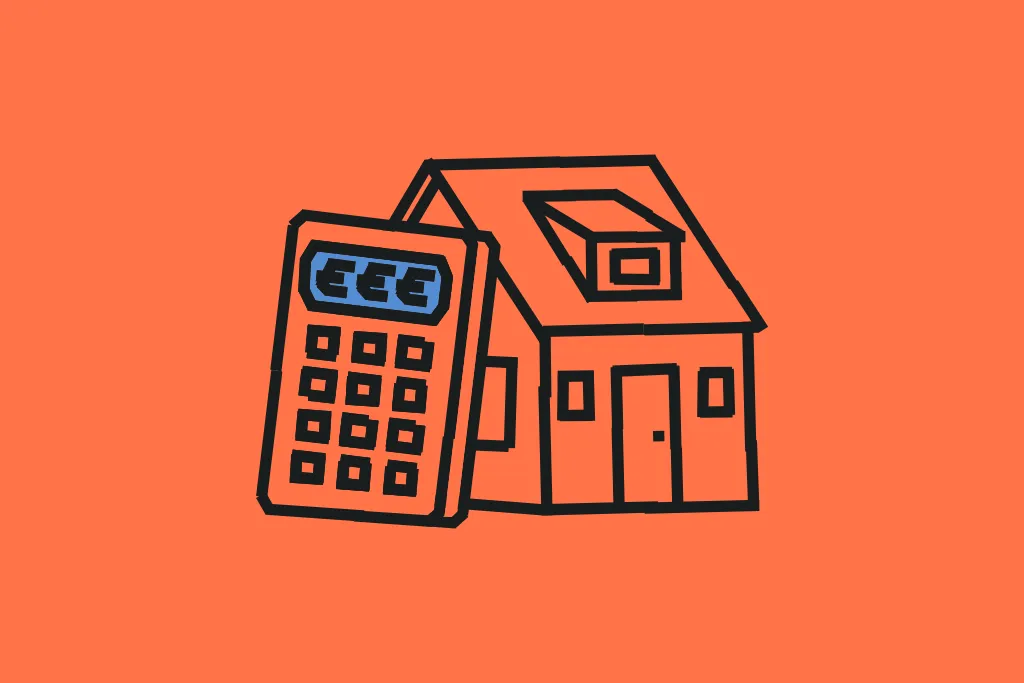What is the cost of withdrawing €30,000 in excess value?
You want to withdraw €30,000 in excess value. Smart, because that's how you free up money from your home. But what does that cost? In short: you pay monthly interest and one-off costs. Below is an overview of the monthly charges and one-time costs for withdrawing equity:
Cost summary at €30,000 excess value withdrawal
| Cost item | Amount |
|---|---|
| Gross monthly expenses | €161 |
| Net monthly expenses | €110 |
| Total interest (30 years) | €28.000 |
| Mortgage Advice | €2000 - €3500 |
| Appraisal fees | €850 |
| Notary fees | €400 - €800 |
| Closing costs | ± €250 |
| Total one-time costs | €3250 - €5150 |
So in total, you pay back almost €58,000 for a withdrawn excess value of €30,000. That seems like a lot. But with a long term comes a lower monthly cost. As a result, you pay more interest over the years. You pay off quietly, without any great pressure on your monthly budget.
In addition to monthly fees, there are one-time costs associated with withdrawing surplus value. Consider advisory costs, notary fees and an appraisal. On average, these costs are between €3250 and €5150. Many of these additional costs are deductible on your tax return.
Want to know what withdrawing excess equity will cost you? Schedule a free consultation with a mortgage consultant. You'll get instant insight into your options and the total cost of withdrawing €30,000 in equity.
{{cta}}
Monthly expenses when withdrawing €30,000 in excess value
When withdrawing surplus value, you want to be sure of one thing: what will you pay per month?
Suppose you withdraw €30,000 in excess value via an annuity loan. You then pay both interest and repayment. With a mortgage interest rate of 5% and a term of 30 years, you pay:
- Gross monthly expenses: about €161
- Net monthly expenses: about €110
In doing so, you build up equity. And at the end of the term, the withdrawn surplus value is fully repaid.
What happens with a different interest rate?
The interest rate directly affects your monthly cost. A higher rate means higher monthly expenses. Example:
- 4% interest = €143 per month
- 6% interest = €180 per month
Do you choose a short fixed-interest period? Then you often pay less interest, but have less security.
What else does your monthly burden depend on?
The monthly burden when increasing your mortgage depends on:
- Your current mortgage type
- Your income and fixed expenses
- How much excess value you want to use
- What your mortgage lender allows
Want to know what withdrawing the surplus value will cost you? Then request a no-obligation consultation with a mortgage consultant. You will get immediate insight into your extra monthly costs and what is smart in your situation.

One-time cost when withdrawing surplus value
In addition to monthly fees, you also face one-time costs. You only pay these if you increase your mortgage or take out a second mortgage to use your surplus value. After that, you have nothing to worry about.
These costs are part of the process of making the recorded excess value available. Consider advice, appraisal and legal action. Below you can see what you will pay approximately:
- Mortgage advice - €2000 to €3500. An advisor looks at your income, checks your existing mortgage and arranges the application. The exact cost depends on your situation.
- Appraisal fee - €850 including VAT. Your home is reappraised to determine the property value. The appraisal is required to verify that you have sufficient excess value.
- Notary fees - €400 to €800. The notary draws up a new mortgage deed and takes care of registration at the Land Registry. No increase in your mortgage without a notary.
- Closing costs - ± €250. Some mortgage providers charge closing costs when raising your mortgage. The amount varies by provider.
The one-time cost of withdrawing the surplus value averages between €3250 and €5150. That may seem like a lot, but the good news is that some of these costs are tax deductible.

Is withdrawing surplus value wise?
Whether it's a smart choice depends on your situation. Below you can see when withdrawing €30,000 surplus value is usually wise and when it's better to wait a little longer:
As you can see, the right choice depends on your personal situation. Do you have a stable income and a clear goal? Then withdrawing €30,000 can be a smart move. But if you have doubts about your ability to pay or home value, it's a good idea to seek advice first.
Are you still unsure whether withdrawing €30,000 in surplus value is a good choice? Read in detail in this article about whether it is wise to withdraw the surplus value.

Inclusion of excess value costs in other amounts
Don't want to withdraw exactly €30,000, but a different amount? Then it's helpful to know the additional monthly fees and one-time costs involved. Check out the costs of withdrawing surplus value at other amounts here:
- What does €10,000 excess value withdrawal cost?
- What does €20,000 excess value withdrawal cost?
- What does €40,000 excess value withdrawal cost?
- What does €50,000 excess value withdrawal cost?
- What does €100,000 excess value withdrawal cost?
Unsure about how much equity on your mortgage is best to withdraw? Schedule a mortgage consultation with an independent mortgage broker.

Here's how to calculate home equity
Surplus value is the difference between what your house is worth now and what you still have to pay off. You can use the excess value to free up money. For example, for a renovation, preservation or a next step.
How do you calculate your surplus value?
- Determine the current value of your home. Look at the market value of recent sales in your area or have your home appraised.
- View your outstanding mortgage debt. You can see this on your mortgage statement or in your banking environment.
- Subtract the debt from the home value.
Your home is worth €350,000. You still have €320,000 of mortgage outstanding.
350,000 - 320,000 = €30,000 excess value
You can withdraw this €30,000 through your mortgage if your income and situation allow. You can use it for a new home, remodeling or to lower your monthly expenses. Read this article if you want to see step by step how to calculate home equity.

Frequently asked questions cost €30,000 0value withdrawal
When withdrawing €30,000 in surplus value, questions always arise. What does it cost per month? What are the disadvantages? In the frequently asked questions below, we provide clear answers so you know exactly where you stand.
What does €30,000 extra mortgage cost?
For a €30,000 mortgage with 5% interest and a 30-year term, you pay about €161 gross per month. Net that works out to about €110. That includes interest and repayment. Do you already have an existing mortgage? Then you can increase it or take out a second mortgage. What is smart in your situation depends on your income and wishes.
What does withdrawing €30,000 in excess value cost per month?
When withdrawing the surplus value, you face higher monthly expenses. With an interest rate of 5% and a 30-year term, you pay about €161 gross per month. Net is around €110. You can also opt for an interest-only mortgage. Then you only pay interest, but your debt remains. This is only possible if you have sufficient income.
What is the disadvantage of withdrawing surplus value?
Your monthly expenses increase because you take out an additional loan. This can be through a mortgage increase or second mortgage. You pay interest and possibly repayment. You also incur one-off costs for advice, valuation and notary. And you carry extra risk if your current mortgage is already high or your income is uncertain. Using excess value is smart, but only for the right purpose.
Is it smart to withdraw surplus value for a car?
In most cases, no. A car loses value quickly. You then often use your excess value via an increase in your mortgage for something that doesn't yield anything. That creates unnecessary extra monthly expenses and higher debt. Using excess value is wiser for something that improves your home or financial position, such as a remodel or preservation project.
Can you also withdraw the surplus value on a redemption-free basis?
Yes, you can. You then take out an installment-free mortgage for the amount you withdraw. You then pay only interest and repay nothing. Your monthly burden remains lower, but the debt remains. This is only possible if you have sufficient income and does not suit every situation. Unsure if this is smart for you? Have a mortgage advisor look it over with you.
What can you use €30,000 excess value of your home for?
You can use your home's surplus value in several ways. Most homeowners choose:
- Remodel or make their home more sustainable
- Buying a second home, such as a vacation home
- Supplementing their retirement or retiring earlier
- Paying off debt or an existing loan
- Reducing their monthly expenses by modifying their mortgage
What's smart depends on your plans, income and home value. Our mortgage advisor is happy to think with you.

{{vragen}}




